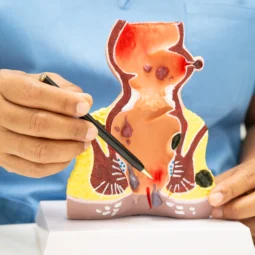
What is gout, and why is it so incredibly painful?
Gout is an inflammatory type of arthritis that attacks suddenly and ferociously, with searing pain that feels like a red-hot poker. It most often affects the lower joint of the big toe, but with each new flare-up, it can move to another joint, such as an ankle, knee, elbow, wrist or finger.
These excruciating attacks happen in people who, for one reason or another, have too much uric acid in their blood. The pain begins when excess uric acid forms sharp crystals in the fluid around a joint, and the immune system responds with a massive inflammatory attack. This response can be so powerful that some people develop a fever along with the pain.
What are tophi?
These are small, hard lumps of concentrated uric acid crystals that can develop over time in gout-affected joints. They also can form in the kidneys and cause kidney stones.
Is gout caused by diet?
Sometimes, but not always. When gout strikes younger people in their 20s and 30s, it’s often due to lifestyle factors such as eating a lot of meat or drinking alcohol excessively, which can raise uric acid levels. When it strikes later, in your 70s or 80s, it’s more likely the result of kidney damage or another condition that increases the risk of gout, such as high blood pressure, diabetes or heart disease.
Are there medications that can help?
Yes — fortunately, there are several good options for relieving pain and preventing future attacks, including:
- Non-steroidal anti-inflammatories for pain relief
- Corticosteroids for pain relief
- A drug called colchicine that prevents inflammation and relieves pain
- Drugs that reduce the amount of uric acid that your body makes
- Drugs that help your kidneys eliminate uric acid
Do dietary changes help?
Dietary measures can’t control symptoms on their own, but they do help. People with gout are advised to limit foods that promote high levels of uric acid, including red meat, alcohol and shellfish.
What about home remedies?
In addition to medication, you can try:
- Resting the joint
- Applying ice packs to the swelling
- Drinking cherry juice
Can gout cause permanent damage?
Yes, it can cause significant joint damage, even when you aren’t in pain. To preserve your joints, be sure to see a doctor for treatment as soon as you notice symptoms.
Dr. Portnoff treats gout and other types of joint pain at The Portland Clinic.


